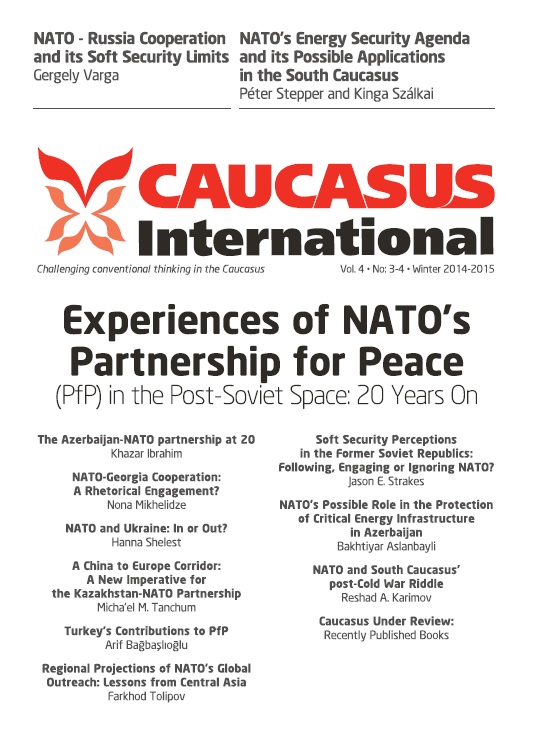NATO’s Energy Security Agenda and its Possible Applications in the South Caucasus
Over the past decades and in the course of a complex discourse, NATO has decided to undertake a role in energy security. From one perspective, the Alliance has already reached a kind of ‘acquis’ related to energy security, based on three strategic priorities: political consultation and intelligence sharing; projecting stability; and protection of nuclear and non-nuclear critical energy infrastructure. On the other hand, NATO’s current activities suggest that it will not take on a leading role, but rather a limited and complementary one. After analyzing the theoretical discourse around the emerging NATO agenda on energy security, the article addresses its practical implications for the South Caucasus. The article explores NATO’s possible contributions to the regional energy security. First, it examines the potential of a traditional deterrence-based approach, before assessing the forms of preventive approaches developed by NATO. The article concludes that cooperation in the framework of partnership programs has been developing in line with the functional security concept, increasing the partner states’ capability to respond to emerging energy security challenges, while also contributing to the security of NATO member states.
Latest news
- 03/17/2020 Call for Submission: “Non-Alignment Movement and Its Perspective in International Affairs”. Deadline: 1 July 2020 2625 views
Popular articles
- 02/24/2020 The Role of Irredentism in Russia’s Foreign Policy 2536 views
- 02/24/2020 Construction of sub-national identity vis-à-vis parent state: Gagauz case in Moldova 2218 views
- 02/24/2020 The Conflict in Ukraine - The Geopolitics of Separatism and Divergent Identities (Commentary) 2072 views
- 02/24/2020 The Role of the Soviet Past in Contemporary Georgia 2044 views





